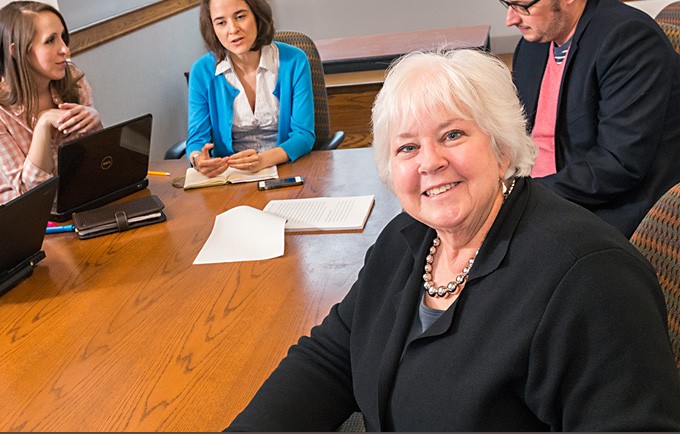Faculty & Research News
REFLECTING ON THE LAST 10 YEARS
Given that the Winston Center for Leadership and Ethics is celebrating its 10th anniversary, this seemed a useful vantage point to reflect and take stock of the research program for the Center. From the start, research has been a vital part of our mission. Research fuels ideas of practical and intellectual importance, creates a knowledge base that we teach to our students, and informs management practices in organizations. Unlike some other university centers, the Winston Center does not advocate or advance a particular research orientation to leadership and ethics; rather, we encourage faculty to address the questions they see as most relevant and valuable. As a result, over the last decade, we have cultivated a diverse and exciting research program. We have studied leadership and ethics from a more psychological, individual-centered perspective, examining the attributes, traits, and identities of leaders, have taken a more cultural, contextualized approach, locating the leaders’ behaviors within the organizational system they are embedded. We also employ different kinds of research methods, ranging from inductive, qualitative approaches through interviews, case studies, and observations, to more deductive, quantitative approaches through surveys, lab studies, and the analyses of strategic and performance data. All of this varied and energetic research activity has led to insights and discoveries about the role of leadership in organizational change, the imprinting of leaders’ values in their upbringing and formative years, how leaders enable ethical change and reform corruption, and the criticality of the language that leaders use to communicate with their employees and stakeholders. The Winston Center is proud of the knowledge that our research program has generated since its beginnings and looks forward to what lies ahead in the coming years.
Mary Ann Glynn, Director of Research
FACULTY GRANT AWARDS
The Center awarded a faculty grant to Nancy Netzer in support of her Museum Current lecture series, which explores leadership and ethics in museum operations and will feature leaders in the museum community, including Barbara Jatta, director of the Vatican Museums.
The Center also gave support to two of the new core classes: former governor of Colorado Bill Ritter Jr. came to campus to talk about political leadership at the state level for climate mitigation and building the new energy economy for the Global Implications of Climate Change class taught by Tara Gareau (Earth & Environmental Sciences) and Brian Gareau (Sociology); and a mini-colloquium on Science and Technology in American Society, an interdisciplinary initiative taught by Andrew Jewett (History) and Christopher Kenaley (Biology), which gave students a new perspective of leadership and ethics through science and technology.




